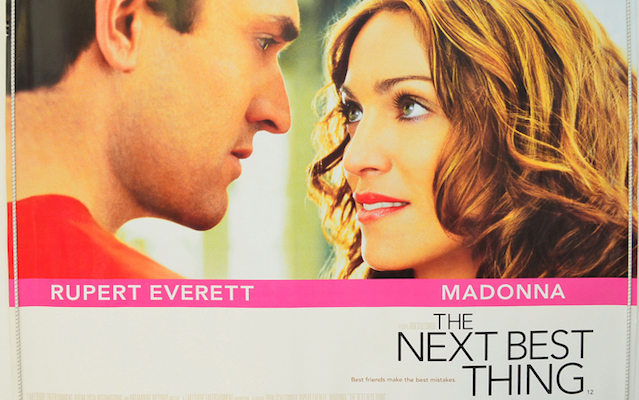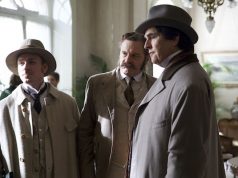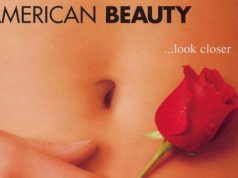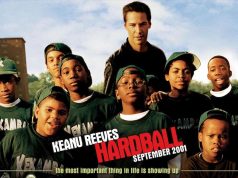
A 1996 documentary called The Celluloid Closet gave a fascinating and fairly thorough history of homosexuality in the movies, in particular addressing the way gay themes used to be kept as subtext rather than expressed outright. Much has happened since 1996, though, and if The Celluloid Closet is ever updated, it will probably include The Next Best Thing as a milestone in gay cinema.
The film starred gay icon Madonna and openly gay actor Rupert Everett, was directed by openly gay filmmaker John Schlesinger, and addressed gay-rights issues at a time when few mainstream movies did so. Surely it earns a place in the history books for those reasons.
Unfortunately, it’s also terrible. Whatever the movie’s intentions might have originally been, the finished product came off as obnoxiously preachy, not to mention phony and unfunny. It tanked at the box office, earning just $14 million in the U.S. and another $9 million overseas. The vast majority of reviews (81%, according to Rotten Tomatoes) were negative, mine included…
What I said then:
“If The Next Best Thing doesn’t turn out to be among the five worst movies of the year, it won’t be for lack of trying. It has all the makings of a terrible movie. It casts Madonna, who has never been capable of acting, as its lead…. Then it makes her act opposite Rupert Everett, who is normally very good but who is here saddled (as is everyone) with atrociously ridiculous dialogue and no characterization. Then it lets everyone act in the most wooden, stilted fashion possible, making the already-absurd storyline seem even more implausible because we never actually believe a single word anyone says. It preaches, too…. The movie ends generically and sadly. Then, over the closing credits, we’re told by words on the screen that things actually turned out OK after all — as if to say, ‘Oh, that sad ending — you know, the one part of the movie that actually seemed based in reality? — we were kidding about that. Everything’s fine.’ Even the actors don’t seem to be having a good time in this joyless, hollow train wreck…. This movie isn’t hell itself, but it is the next best thing.” Grade: F [My complete review.]
The film did indeed make my worst of 2000 list, surpassed only by Blair Witch 2: Book of Shadows, Pokemon The Movie 2000, and Battlefield Earth. For obvious reasons, I barely gave it another thought after that. But 12 years have passed. Who knows? Maybe the parts that are supposed to be funny would seem funny to me now, and maybe the dramatic elements would come together more gracefully. I’m always willing to give someone a second chance!
The re-viewing:
Ugh, this movie is awful. Everything about it, from the first frame to the last. I went in with an open mind, I promise. I didn’t re-read my original review first, and I did read the few positive reviews I could find. But even still, sitting through this embarrassment again was a chore.
How sad that this was John Schlesinger’s last film. He won an Oscar for directing Midnight Cowboy (1969), went on to make Sunday Bloody Sunday (1971), The Day of the Locust (1975), and Marathon Man (1976), and wound up here, working on a movie that probably meant something to him personally but was doomed for failure. He suffered a stroke several months after The Next Best Thing was released (he’d already had a quadruple heart bypass in 1998), and remained in poor health until his death in 2003.
Perhaps even worse than this being Schlesinger’s last film is the fact that it wasn’t Madonna’s.
Hey, look! Neil Patrick Harris is here, in a supporting role as a gay friend of Rupert Everett’s. This was six years before he officially came out of the closet (in People magazine, of course, as required by law), but I don’t think he was trying to hide it, either. He hadn’t been in the public eye much since Doogie Howser anyway, apart from a role in the 1997 cult favorite Starship Troopers. And now he’s the king of everything, beloved by one and all, happily married to David Burtka and raising twins! The world is different now from what it was in 2000.
I’d forgotten the asinine twists that the plot takes in its second half. Madonna’s character turns out to be an utterly loathsome human being, and there’s a barrage of implausible nonsense. It ends on a somber note — but one that was realistic for the time — only to cancel it out over the closing credits in favor of a “they all lived happily ever after” ending. The whole thing is baloney.
You know who else thinks so? Rupert Everett. He wrote very amusingly about the process of making this disaster, including several anecdotes about Madonna’s diva behavior. Reading that, I’m surprised the movie didn’t turn out worse than it did.
Do I still hate this movie?
I do. Very much so. Its combination of casting and subject matter will give it a place in the history of gay cinema, and one could argue that anything that contributes to awareness of important issues isn’t completely worthless. But as a movie, it’s an unholy mess, devoid of humor, intelligence, and entertainment value. Let us never speak of it again. Grade: F
— Film.com




